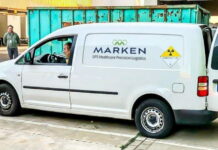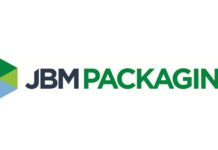Amcor, a global leader in developing and producing responsible packaging solutions, announced a further increase in its sustainability efforts by committing to science-based targets to reduce greenhouse gas (GHG) emissions and to achieve net zero emissions by 2050.
This commitment has been recognized by the Science Based Targets initiative (SBTi) and builds on the success of Amcor’s EnviroAction program. Since the program started in 2008, Amcor has already reduced GHG emissions intensity by 35% and is on track to deliver a cumulative 60% reduction by 2030.
“For more than a decade, Amcor has been successfully reducing the footprint of its carbon and other GHG emissions,” said David Clark, Vice President of Sustainability at Amcor. “We are excited to step up those ambitions by committing to science-based targets as we continue our journey to net zero emissions.”
Science-based targets help organizations establish verifiable benchmarks and plans to reduce their GHG emissions, which in turn supports the Paris Agreement’s goal of limiting global warming to well-below 2°C. In addition to carbon-related objectives, Amcor maintains robust targets for reducing water and waste-to-disposal.
“Importantly, these targets are just one element of Amcor’s wide-ranging sustainability strategy, which aims to reduce our direct impact on the environment, while helping our customers achieve their own sustainability ambitions,” Clark added. “Amcor is proud of the progress we have made on our environmental goals while innovating to deliver packaging solutions that create value for all our stakeholders.”
The announcement comes on the fourth anniversary of Amcor’s pledge to design all its packaging to be recycled or reusable by 2025. Currently, three-quarters (74%) of Amcor’s products by weight are now designed to be fully recyclable.
About Amcor
Amcor is a global leader in developing and producing responsible packaging for food, beverage, pharmaceutical, medical, home and personal-care, and other products. Amcor works with leading companies around the world to protect their products and the people who rely on them, differentiate brands, and improve supply chains through a range of flexible and rigid packaging, specialty cartons, closures and services. The Company is focused on making packaging that is increasingly light-weighted, recyclable and reusable, and made using an increasing amount of recycled content. Around 46,000 Amcor people generate $13 billion in annual sales from operations that span about 225 locations in 40-plus countries.



























